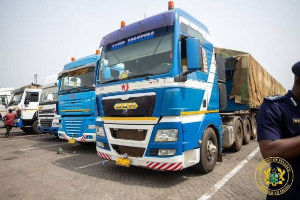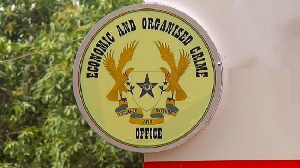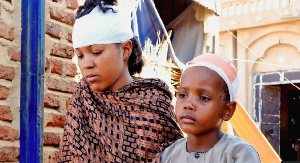Census has been an essential part of a nation’s ‘sacramental duties’ for centuries. In years past, the exercise was meant to not only take stock of the increase in the size of the population but also to identify men fit for enlistment into the military or for conscription.
Census has had a profound impact on the social-political and economic development of the human race since the 17th century when the idea of the modern census commenced.
The focal aim of the population and housing census is to guarantee the maintenance of demographic, socio-economic and housing standard data covering the national, regional, district and local levels with the purpose of ascertaining changes that have occurred since the last five or 10 years.
It goes without saying, that the 2020 Ghana Census is a sine qua non for taking key decisions regarding the populace.
One erroneous viewpoint held by many people is the strict association of census with human counting. Indeed, taking stock of the nationals in terms of numbers is the first step in the entire process, but it is not the penultimate goal.
Thus, whenever, people begin to limit the work of the Ghana Statistical Service to numbers, or even in extreme cases, doing the bidding of the government of the day, they clearly and unfortunately miss the essential mark.
What actually happens after the counting is the critical reason that informs and makes inevitable, the census exercise. When elections are held, they help elect leaders to spearhead the development of a people, however, the outcome of a census is what guides such leaders in taking decisions about where, what, how, and when developmental projects should be embarked upon. In other words, a census exercise, particularly in open societies provides the very data that inform critically, decisions on the socio-political and economic development of the nation.
Its very decade-long interval gives room for proper and well-thought-through decisions to be taken. It is one national exercise that encapsulates both top-bottom and bottom-top approaches.
The UN-2020 World Population and Housing Census Programme identify population and housing censuses as one of the primary sources of data needed for formulating, implementing and monitoring policies and programmes aimed at inclusive socioeconomic development and environmental sustainability (UNESC-E/RES/2015/10. T).
Thus, matters revolving around income, sex, age, ethnicity, race, disability, migratory status, geographic location, employment, under and over representations are significant variables considered in population and housing censuses.
On that note, it is proper to query whether in the midst of the COVID19 pandemic, Ghana should still give any consideration to the 2020 Census. The UNFPA admonishes countries to opt for adjournment, rather than total cancellation.
Indeed, without slighting the pandemic and its teething ramifications on the global village, it is important to note that many of the nations are beginning to open up and pay some attention to other aspects of their national systems.
China has already lifted its total lockdown of some of its hard-hit cities; South Korea, the US, Germany and others are all considering losing the strict and rigid restrictions put in place in the wake of the pandemic.
The US which conducts its census around the same period as Ghana is continuing with this indispensable exercise (with very minimal or no in-person field operations) and has already covered about half of the population.
Why will the US go ahead with its 2020 census exercise given the incalculable number of COVID19 cases including thousands of deaths compared to Ghana? There are only two reasons: census is crucial for the running of the nation; life must not come to a standstill after the pandemic (mustn’t start from the scratch).
As a people, we must combat every phenomenon with all the seriousness that matters, but must also not be oblivious of other equally significant engagements, especially those intertwined with immediate and long term developments of the nation.
All Ghanaians should be self-motivated to be prepared to fully commit themselves to participating fully in the census anytime it kick-start.
We should all fathom that your lack of participation will under-represent your district, constituency and region, which will eventually affect certain decisions concerning those areas – ‘your national cake can be caked.’ Decisions concerning allocations of resources – social amenities- education, healthcare, post office, and others such as security stations, job creation, intake of security personnel, creation of new regions and districts/metropolitans and municipalities.
Given, the above nuts and bolts of census, it becomes crystal clear that the success of such an august exercise requires the effort all and sundry – chiefs, assemblymen and women, heads of institutions and families. It's therefore imperative for all opinion leaders to realize the exigency of carrying out the 2020 census and offer their full succor when the time is due.
Information gathered is that the Ghana Statistical Service, the institution tasked with the responsibility of conducting census has already spent a colossal amount of money in preparation for the exercise – which include, inter alia, acquisition of logistics; hiring of officers for the purpose of conducting the 2020 census, some training and many more.
Unfortunately, the COVID19-induced pandemonium which has clouded many activities in the country has, inadvertently, affected the timing of the 2020 exercise. The exercise has been postponed once already – March, and it’s likely to be deferred again. Interestingly, many are those who have raised issues about the need for the general elections to be held as normal, yet not much has been said about the palpable need of the census data which will go a long way to impact the outcome of the election itself.
Notably, the existing all-inclusive comprehensive data on all the populace of Ghana is obsolete or at best, lacks currency (since it’s a decade old - 2010). Suffice to say that, from data merge and authentication perspectives, the census ought to precede the elections.
What needs to be done is to find people with the expertise to help the GSS find innovative ways to help conduct this all-important national exercise. Of course, what comes to mind first, is digital approach, yes, that’s awesome, but wait a minute, have you considered technological determinism? Given the level of technological advancement of the nation, it requires more than just the digital approach – the HOW-question would have to be given a serious consideration.
The fate of the Ghana 2020 Census should not be left in limbo, particularly as things begin to normalize as it is embroiled in the very cradle of the nation’s development. 'Necessity,' they say 'is the mother of invention,' - indeed, we are not in normal times, but extreme precautions should be taken to eschew any stillbirth of other critical aspects our survival and progress as a nation.
Opinions of Thursday, 23 April 2020
Columnist: Dr. Isaac Nunoo















